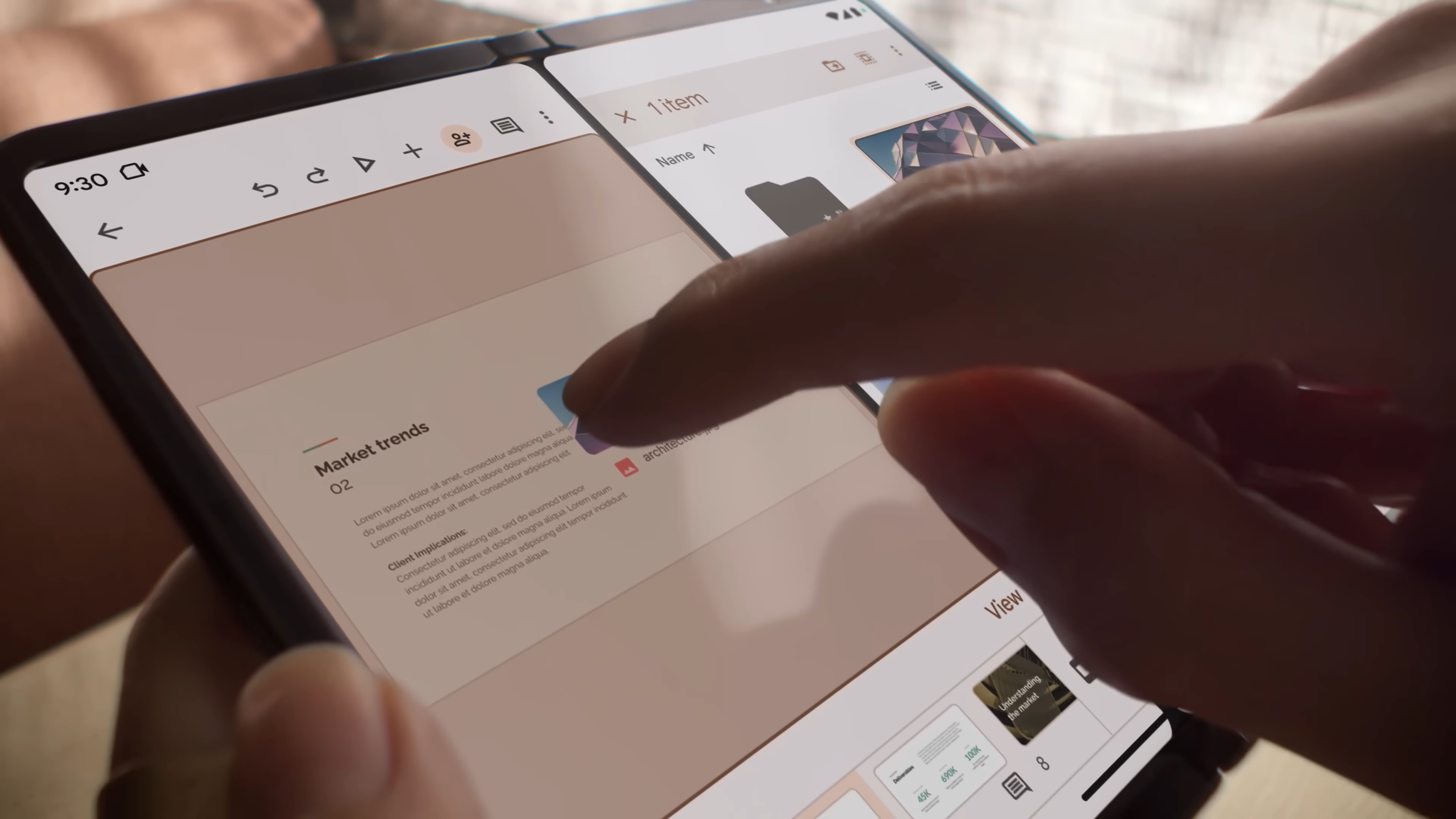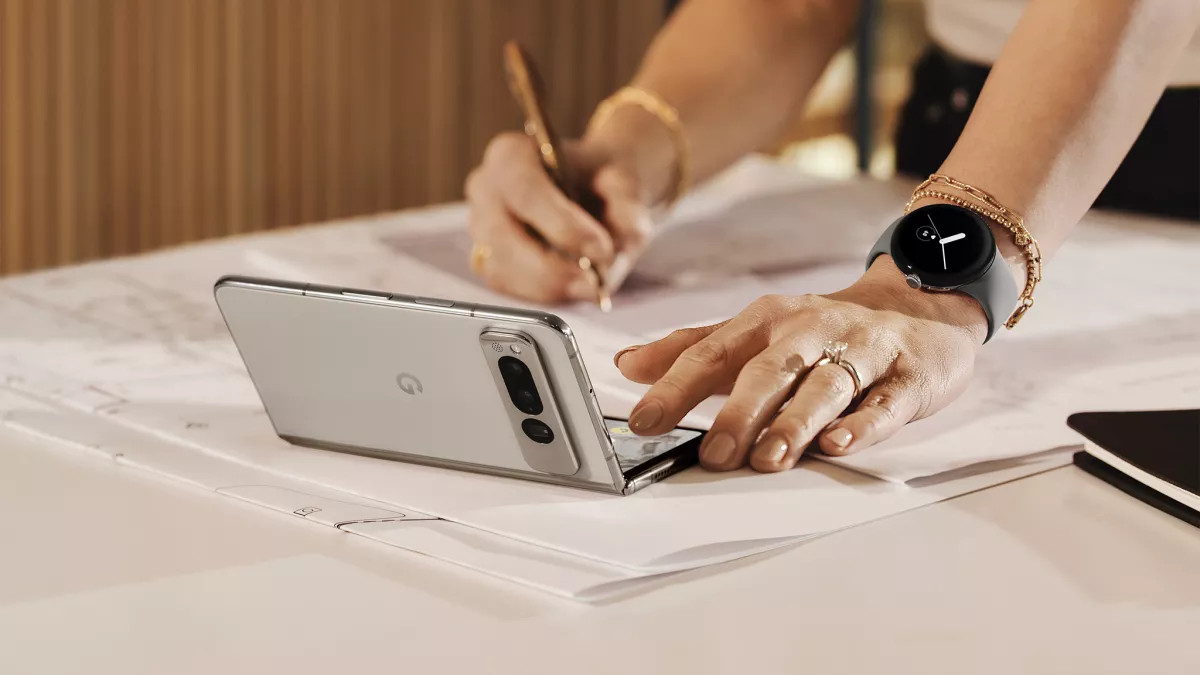Yesterday, Google unveiled the Pixel Fold after months of leaks and rumors. The device resembles something akin to a foldable Surface Duo, with a short but wide aspect ratio in an incredibly thin chassis. In a word, it’s gorgeous and is the exact kind of foldable I’m hoping Microsoft is eventually able to deliver with a future Surface Duo 3.
I’ve been daily driving a Surface Duo since the first one shipped in 2020, and I’ve loved my time with it. It changed how I use phones, putting multitasking at the forefront of the experience without me really even needing to think about it. That’s the beauty of defined real estate; it forces you to multitask, and the multitasking is effortless as a result.
But the phone market moves quickly, and Microsoft cannot afford to skip updating the Surface Duo with new hardware on a regular schedule. Any phone maker that wants to be taken seriously is updating their flagship phone on an annual basis, and Microsoft needs to be doing the same if it wants the world to take Surface Duo seriously.
Sadly, Microsoft opted to skip releasing a new Surface Duo at the end of 2022, and now the company is rumored to be pivoting away from the dual-screen form factor, adding a further delay to when we might next see a Surface phone from Microsoft. If Microsoft truly cared about making a name for itself in phones, it wouldn’t be fumbling this execution so poorly.
Three years off the scene is a death sentence in the phone space. If you’re going to take a three-year break, any goodwill you may have built up with fans and customers will all be gone by the time your next phone is ready to ship. Why would anyone pick up a Surface Duo 3 if they can’t guarantee it’ll be updated on a timely schedule?

Now, I’m actually not against Microsoft moving away from dual screens like some die-hard Surface Duo users might be because the dual-screen experience can (for the most part) be emulated across a single-foldable screen. The only thing you’re not going to get is that automatic multitasking experience, as the Pixel Fold (and Galaxy Fold) require user input to run two apps side by side.
But, frankly, that’s a small price to pay for an up-to-date phone with excellent cameras that’s still pretty great at multitasking, with the added benefit of not having a gap running down the middle. This benefits video consumption and most Android apps that never updated to correctly support spanning on Surface Duo, but operate fine on a larger folding screen (looking at you, Gmail.)
And that’s ultimately the reason why I’m dropping the Surface Duo 2 for the Pixel Fold when it starts shipping next month. Microsoft’s lack of feature updates (and seeming abandonment of the device from an app-development perspective) is adding insult to injury at this point. With no hardware on the horizon and disappointing software support for existing users, why should I stick with the Duo 2 when the Pixel Fold is able to mimic 90% of it but better?
I’m just so disappointed that Microsoft dropped the ball once again in the phone space. I truly believe Microsoft could have a successful phone business if it actually put some effort into supporting the hardware and software long term. Phones are not like PCs, they need to be updated and refreshed on a regular basis. That includes both software updates and hardware updates.

I know I’m going to get that with the Pixel Fold. I know it’s going to get new features on a regular basis thanks to Google’s consistent Pixel Feature Drops that occur every few months, and I know Google updates its hardware portfolio on an annual cycle, making it easy to predict that a Pixel Fold 2 is likely to launch next fall.
The same simply cannot be said for Surface Duo. When is the next feature update coming? When is the next phone on the way? We don’t know, because Microsoft doesn’t communicate. Again, phones are not like PCs. People care about their phones, they want to know what’s coming next and when. Phone refresh cycles are an open secret for a reason. Everyone knows when the next iPhone, Samsung, and Google phone is coming. The same cannot be said for the next Surface phone.
And that’s Microsoft’s ultimate downfall in this space; a lack of consistency and stability. It’s a hardware maker that can’t be trusted to keep things updated, and the more Microsoft fumbles this, the harder it’s going to be for them to return to the phone market once more.




